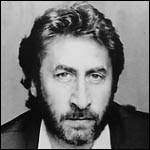The Character You Know Best
 Howard Jacobson discussing character on Ian McMillan's Writing Lab:
Howard Jacobson discussing character on Ian McMillan's Writing Lab:
...there’s a general thing to say about characters, which is in the end, no matter where you find [them] from, and no matter how closely you are looking, or no matter how interestingly you’re observing, in the end a character will originate in the seedbed which is your own mind, your imagination.
The characters who give me most trouble are the characters most like myself. And that’s to say the male hero because I mainly do have male heroes. And the reason they give you so much trouble is because there is something you’re needing to honour that’s not to do with just what you’re creating in your mind or on your desk in that hour. A minor character comes and goes and you owe no-one anything, he’s yours. You’re not trying to live up to something that you’ve seen, even though you may have seen something interesting.
When you’re writing about yourself, there is the tumult of you that you have to do justice to, and that you will feel you’ve failed it if you’re too easy on yourself, if you’re too hard on yourself, if you’re too kind, if you’re too funny about yourself or solemn about yourself. So to get the balance of feelings towards yourself and you too are a character in a novel if your novel’s any good. You, too, are a character, you’re not just the voice, you are the character. So you are fretting all the time about whether you’re doing justice to yourself. The character you know best is the hardest character to write.
...
I think one thing to avoid with character is the idea that you can go out and find it. There is an assumption that if you overhear people, on a bus or a train, and repeat what they say, you will have the real feel of life. You won’t. If you write what you’ve overheard, it will sound like something that you’ve overheard. It has to go; it has to pass through you first. It has to have the permission. A character has to have the permission of your soul before it becomes a character. A character isn ’t vivid by virtue of your having seen a vivid person in life. Nothing lives, nothing in a novel lives, neither character nor story nor anything else until it is written. By which I mean until it has become yours.
No character is a picture of a real one. You couldn’t write if you haven’t lived in a real non-fictional world but your characters, once you’ve made them, are yours, accountable to nobody but you.
[mp3 of interview]





